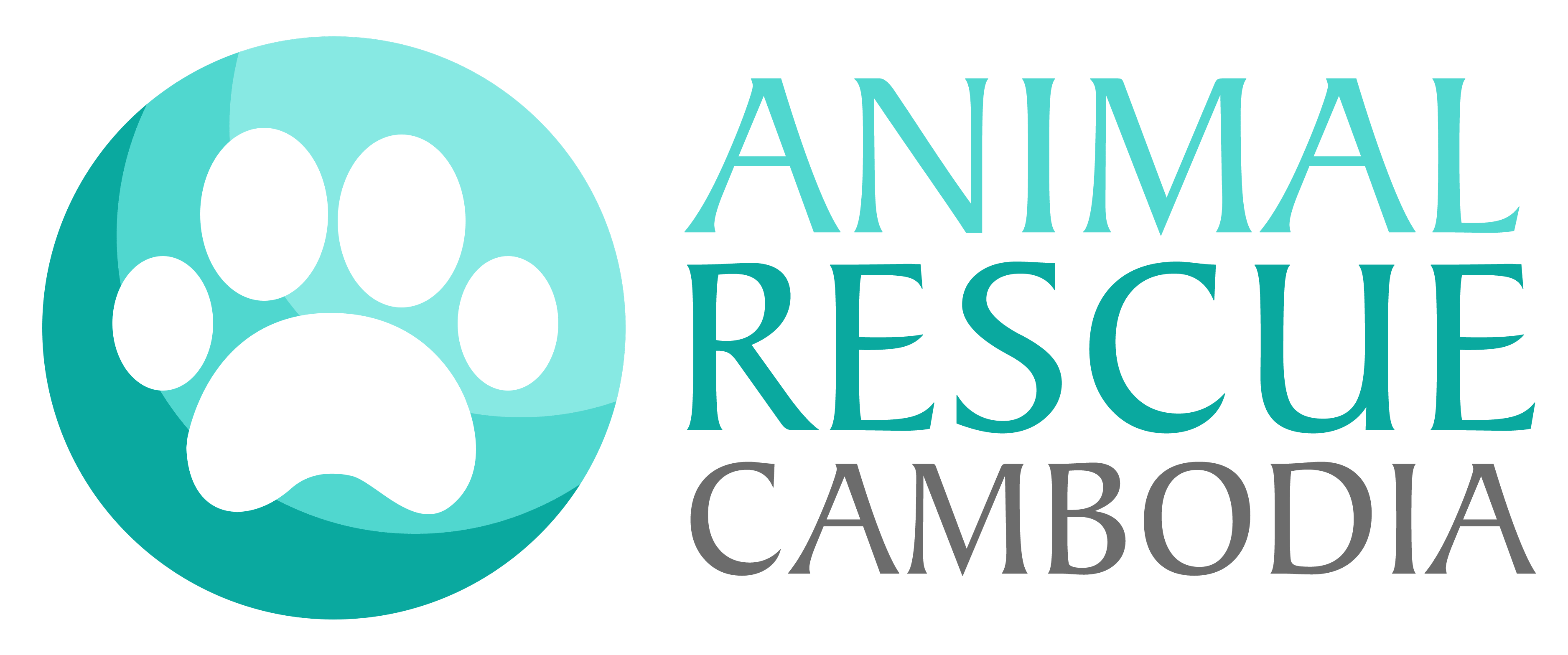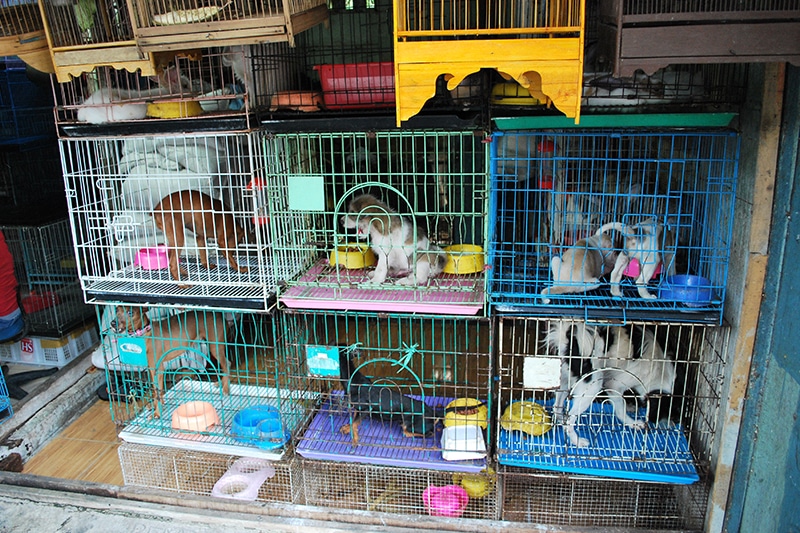4 Reasons NOT to Buy Pets from Pet Shops
These are our top four reasons to adopt a pet rather than to buy one from a pet store or a breeder.
- Pet shops are businesses – they treat animals like products
- Pet store animals are often sick and have behavioral problems
- The horror of puppy mills
- Wildlife & exotic pets
Let’s talk about these issues in a bit more detail.
1. Pet Shops are Businesses
These days, fashion trends are no longer limited to clothing and shoes. It has also become fashionable to own designer cat and dog breeds. Japan and South Korea, for example, are well known for these fashionable pets, and Cambodia is no exception. While it may be popular and fashionable to own a mini dog or a rare breed, buying these dogs from a pet shop has a dark and troubled backstory, fraught with animal abuse and neglect.
All over the world, including Cambodia, pet shops are businesses. They rely on their goods (cats, dogs, rabbits, birds, fish, etc.) to be cute and appealing to their customers. Because this is how they make money. Pet shops often don’t care about the well-being of their animals. To them, they are simply “products” that people shop for. And in Cambodia, there are not even laws to protect these animals, and animal welfare is a rather new concept. This often reflects how the animals are treated. They are kept in small cages, with little water and food, in the open sun by streetside. And if no one buys them, in Asia, these animals may just end up in the cooking pan.
2. Pet Store Animals are Often Sick & Have Behavioral Problems
3. The Horror of Puppy Mills
Especially pedigree dogs like Huskies and cats like Main Coon are often “produced” in so-called puppy mills. Female cats and dogs are forced to have several litters per year. Year after year. They are not family pets, loved, and cared for. The moms are a business and exploited for their offspring. And when they no longer “function”, they are disposed of.
In fact, the majority of pets sold in pet shops come from puppy farms or so-called “puppy mills”. In these puppy mills, dogs suffer in horrible conditions. From birth, the animals are kept in tiny cages, with unsanitary conditions, and receive no medical care or vaccinations. As soon as they are old enough, female dogs are forced to breed and are bred continuously until they die of medical complications or are put to sleep when they can no longer carry a litter to term.
Puppies are taken away from their mothers as early as four weeks old when they should remain until the 12th week. The puppies then suffer from poor nutrition and a weak immune system, lacking the nourishment and antibodies needed from their mother’s milk. This sudden separation also causes mill puppies to become extremely stressed. This weakens their already weak immune system and increases their chances of getting infections and diseases. Furthermore, lack of socialization with other animals or humans results in social issues, causing anxiety, fear, and aggression.
Why would anyone treat animals this way, you ask?
The answer, to maximize profits. When you buy a dog from a pet shop, you will pay hundreds, if not thousands of dollars for a desirable breed of dog. These dogs, which have been born in puppy mills cost mere dollars to raise, so the profit margin is huge. Once sent to the pet stores, the puppies while cute, are malnourished, carrying diseases, and can have extreme social anxiety. Their health is often so poor that they die at the shop, or die shortly after being taken home.
The vets at VSL Veterinary Clinic in Phnom Penh confirm that when they treat pet shop puppies, they often encounter fleas, ticks, worms, parvovirus, and distemper. Yet, many pet store owners will tell you that your “animal is healthy and fully vaccinated”. However, this is most likely not the case.
The Issue with Rabies
One of the biggest issues in Cambodia is widespread rabies, carried not only by street animals but also potentially by the puppy you bought in the pet shop. Puppy mill breeders are rarely if ever, vaccinated and neither are the puppies.
“Puppies can catch rabies easily from their mother and it is possible that weeks or months might pass after a dog contracts rabies before it starts to show signs”, the head vet at Animal Rescue Cambodia warns. “There is no guarantee that the puppy’s mother is vaccinated which is why it is so important to get your puppy vaccinated as soon as possible. People usually catch rabies from dog bites but it is also very easy to catch it from an infected dog licking you. Vaccination is especially important because puppies with rabies initially act very cuddly and needy.”
4. Wildlife & Exotic Pets
It should go without saying that wildlife like monkeys, eagles, or bears are (a) NOT suitable pets due to their nature and (b) often protected or even endangered species that have no reason to be in the hands of private owners. They belong in the wild! You may think that we are exaggerating. But we have seen all of this in Cambodia with our own eyes! In fact, owning wildlife is ILLEGAL in Cambodia. If you see this, please contact our friends at Wildlife Crime Hotline – Cambodia “បង្ក្រាបបទល្មើសសត្វព្រៃកម្ពុជា” immediately!
Animal Adoption is the Best Way to Add a Pet to YOUR Family
The only way to guarantee that you are bringing a healthy, vaccinated puppy into your home is to adopt from a reputable breeder, or – even better – from your local animal rescue organization! Adopting from an animal rescue not only takes an animal off the streets, but will give you the peace of mind that the animal you are adopting has been spayed/neutered, vaccinated, de-flead and de-wormed, and that it is old enough to be adopted. Every animal adopted from a shelter makes space for another animal to be rescued from the streets.
- Contact animal rescue organizations near you to ADOPT an animal
- In Phnom Penh, Animal Rescue Cambodia has many cute and sweet kittens, cats, and dogs that are waiting to love and be loved
- More information here: www.ar-cambodia.com/adoption
- You can also visit some of our rescue cats at our valued partner Ministry of Cat: Rescue Cat Cafe & Adoption Center at Russian Market

